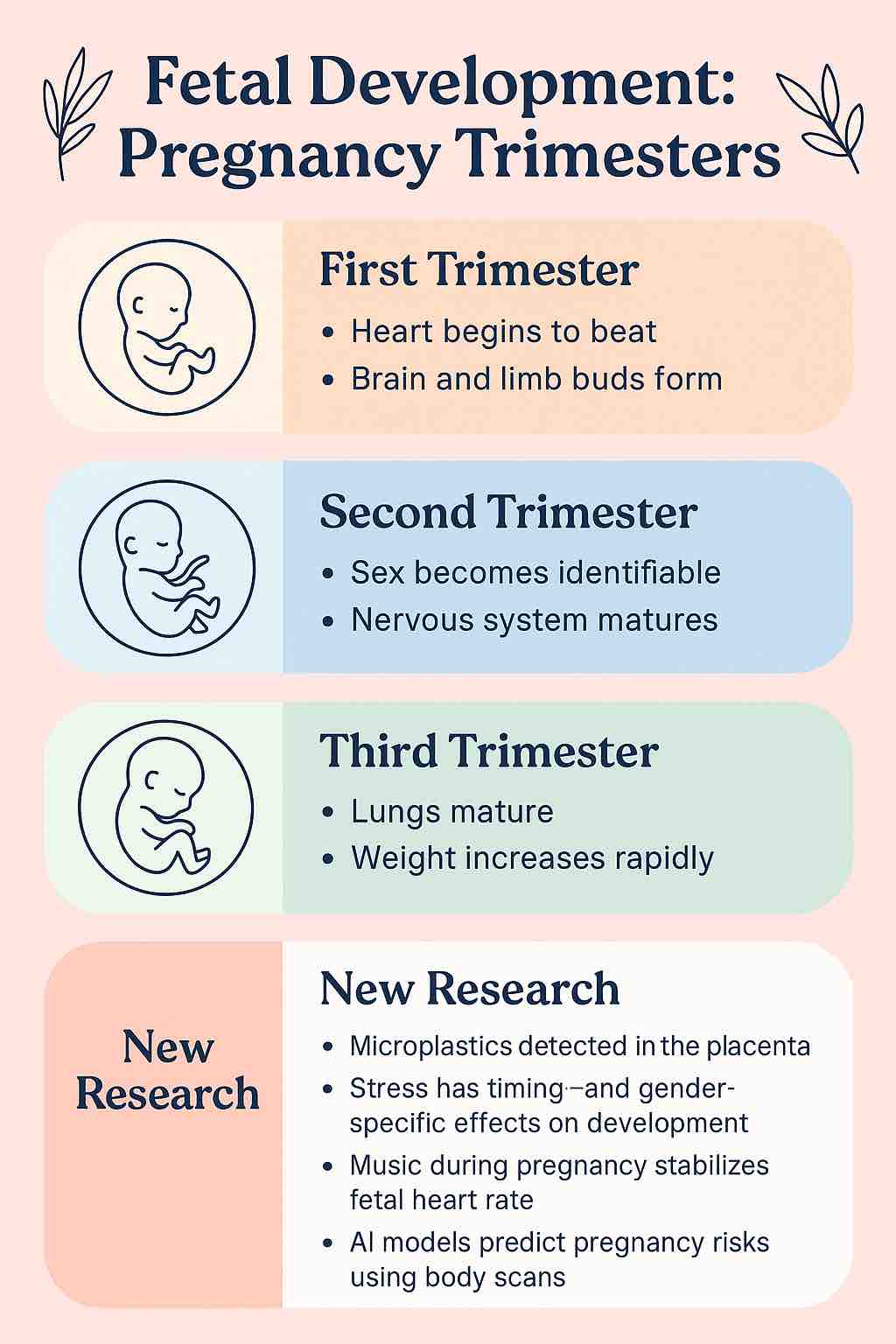
Have you ever found yourself eyeing the bright, sun-kissed lemons in your kitchen, wondering if they’re more than just a tangy addition to your water or a garnish for your meals? Especially now, when you’re embarking on the extraordinary journey of pregnancy, every bite and sip carries newfound significance. In this vibrant chapter of life, as you navigate the sea of dietary dos and don’ts, the humble lemon emerges not just as a citrusy delight but as a topic of curiosity and concern.
Lemons, those zesty spheres of Vitamin C, have been the subject of many a kitchen-table discussion among expectant mothers. Can these sour gems be the unsung heroes of your pregnancy diet, or do they hide risks beneath their yellow cloak? The truth is, when it comes to pregnancy, nutrition transforms into a kaleidoscope of both opportunities and cautions. And lemons, with their vibrant color and invigorating scent, are no exception.
In this comprehensive guide, “Lemons in Pregnancy: A Zesty Guide to Benefits, Risks, and Tasty Tips,” we peel back the layers (quite literally!) to explore the multifaceted role of lemons during pregnancy. We delve into the heart of scientific research and expert opinions, sift through myths and facts, and bring to you a treasure trove of information that balances taste with health, zest with caution.
Why lemons, you ask? This seemingly simple fruit is a powerhouse of nutrients, each playing a pivotal role in supporting both you and your growing baby. But as with any superhero, lemons have their kryptonite too. Their high acidity can be a double-edged sword, offering benefits and presenting challenges unique to pregnancy. It’s a balancing act – understanding how to harness the goodness of lemons while sidestepping the pitfalls.
So, whether you’re battling morning sickness and looking for natural remedies, seeking ways to boost your immunity, or just craving a refreshing lemonade on a warm afternoon, this guide has got you covered. We’ll walk you through the sunlit orchards of lemon benefits, tread carefully through the thorny bushes of risks, and even share some delectable, pregnancy-safe recipes that will make lemons your loyal companions on this incredible journey.
Grab a glass of lemon-infused water, make yourself comfortable, and let’s embark on this zesty adventure together – where every squeeze of lemon is packed with potential and every slice is a slice of knowledge!
The Nutritional Profile of Lemons: A Deep Dive into What Makes Them Special
As we embark on this exploratory journey into the world of lemons, let’s first pause to appreciate the intricate tapestry of nutrients woven into each of these vibrant fruits. The lemon, often seen merely as a source of sour delight, is, in fact, a cornucopia of health benefits, especially crucial during the unique life stage of pregnancy. But what exactly does this citrus wonder offer? Let’s unpack its nutritional profile, revealing how each element contributes to the wellbeing of both the expectant mother and the developing baby.
A Symphony of Vitamins and Minerals
At the heart of a lemon’s health benefits is its impressive array of vitamins and minerals. Here’s a closer look:
- Vitamin C – The Immunity Booster: Widely known for its immune-boosting properties, Vitamin C is a potent antioxidant. In pregnancy, it takes on an added significance, safeguarding both the mother and the baby against potential infections and playing a pivotal role in the absorption of iron – an essential mineral for preventing anemia in expectant mothers.
- Folate – The Neural Protector: Folate, or Vitamin B9, is a hero for early fetal development. It’s crucial in forming the neural tube, which later develops into the baby’s brain and spinal cord. Adequate folate intake reduces the risk of neural tube defects, making lemons an invaluable addition to a prenatal diet.
- Potassium – The Electrolyte Regulator: This vital mineral keeps the body’s fluid balance in check, aids in nerve function, and helps regulate muscle contractions – a function especially important for those tiny, growing baby muscles.
- Flavonoids – The Silent Guardians: These potent antioxidants are known for their anti-inflammatory and anti-cancer properties. During pregnancy, they work silently yet effectively to protect the body against diseases and aid in the overall health of the mother and baby.
- Dietary Fibers – The Digestive Aids: Lemons contain dietary fibers, which are beneficial for digestive health. They help prevent common pregnancy-related issues like constipation and ensure a smooth digestive process.
Beyond the Basics: Lesser-Known Compounds
It’s not just the well-known nutrients that make lemons a worthy contender in a pregnancy diet. Lesser-known compounds in lemons, such as citric acid, limonene, and hesperidin, also play significant roles. Citric acid aids in metabolism and energy production, limonene offers its anti-inflammatory and antioxidant benefits, while hesperidin strengthens blood vessels, which is vital as the body undergoes significant changes during pregnancy.
The Lemon’s Edge: Nutrient Density Per Calorie
What makes lemons particularly appealing for pregnancy is their nutrient density per calorie. They pack a punch of essential nutrients while being low in calories, making them an ideal choice for maintaining a balanced prenatal diet without the added worry of excessive weight gain.
The Multifaceted Benefits of Lemons During Pregnancy
Embarking further into our lemon-laden journey, we now turn our attention to the myriad ways in which this citrus powerhouse can positively impact pregnancy. Each nutrient in a lemon doesn’t just sit idly; it plays an active role in nurturing both mother and baby. From bolstering the immune system to aiding fetal development, let’s zestfully explore these benefits.
1. Immunity Enhancement: A Citrus Shield Against Illness
During pregnancy, a woman’s immune system undergoes a complex transformation, often becoming more susceptible to infections. This is where the high Vitamin C content of lemons comes into play. Acting as a formidable shield, it strengthens the body’s defenses. Moreover, the antioxidant properties of Vitamin C help reduce oxidative stress, a factor linked to several pregnancy complications.
2. Navigating the Seas of Nausea with Lemon’s Aid
Morning sickness, an unwelcome companion for many during the first trimester, can often be mitigated by the refreshing scent and flavor of lemons. The mere act of inhaling the aroma of a freshly cut lemon can bring a sense of relief to expectant mothers battling nausea. Drinking lemon-infused water or simply sucking on a lemon slice can be surprisingly effective remedies.
3. Fetal Development: Building Blocks Provided by Lemons
The growth and development of the fetus are paramount concerns during pregnancy. Lemons, rich in folate, contribute significantly to the development of the baby’s brain and spinal cord. Furthermore, the potassium in lemons plays a critical role in the development of baby’s bones, muscles, and nervous system.
4. Iron Absorption: Maximizing Benefits from Every Meal
Iron deficiency is a common concern during pregnancy, often leading to anemia. Vitamin C, abundantly found in lemons, enhances the body’s ability to absorb iron from dietary sources. This is particularly beneficial for those who rely on plant-based iron sources, as the non-heme iron in plants is made more bioavailable through the presence of Vitamin C.
5. Digestive Comfort: Easing the Digestive Turmoil of Pregnancy
Constipation and irregular digestion are frequent issues faced during pregnancy, owing to hormonal changes and the pressure exerted by the growing uterus. The dietary fibers in lemons assist in regulating the digestive system, making bowel movements smoother and less discomforting.
6. Hydration: The Understated Hero of Pregnancy Health
Staying adequately hydrated is crucial during pregnancy, and the enticing flavor of lemon-infused water can encourage regular fluid intake. Proper hydration is vital for maintaining amniotic fluid levels, aiding in nutrient transport, and reducing the risk of common pregnancy-related problems such as urinary tract infections and constipation.
7. A Sip of Lemon Water: The Ally for Blood Pressure Regulation
Lemons, being a good source of potassium, help in regulating blood pressure, a crucial aspect of prenatal health. High blood pressure during pregnancy can lead to complications such as preeclampsia. Incorporating lemon into the diet can be a natural and tasty way to help keep blood pressure in check.
In each drop of lemon juice and every whiff of its zest lies a spectrum of benefits, intricately woven to support the journey of pregnancy. As we savor the knowledge of these benefits, it’s equally important to tread cautiously and be aware of the potential risks and how to mitigate them. In the following section, we’ll peel off the layers of caution, balancing our love for lemons with the wisdom of moderation.
Trimester-Wise Breakup: Leveraging Lemons Throughout Pregnancy and Beyond
As we delve deeper into the journey of pregnancy, it becomes evident that each trimester presents its unique set of challenges and needs. Lemons, with their versatile benefits, can be a valuable ally throughout these stages. Moreover, their role continues postpartum, supporting new mothers in their recovery and breastfeeding journey. Let’s explore how lemons can be optimally used in each trimester and beyond.
First Trimester: The Foundation Phase
- Combating Morning Sickness: With nausea and vomiting being prominent in the first trimester, lemon’s natural ability to alleviate these symptoms is invaluable. Sipping lemon water or inhaling the scent of fresh lemons can provide relief.
- Folate Boost: As the neural tube development is crucial during this phase, leveraging lemons for their folate content supports this essential growth process.
- Hydration and Gentle Detoxification: The diuretic properties of lemons, coupled with their hydrating effect, can help in gently detoxifying the body, which is beneficial during the early stages of pregnancy.
Second Trimester: The Growth Phase
- Nutrient Absorption: As the baby’s growth accelerates, the need for increased iron and other nutrients becomes critical. Lemon’s role in enhancing iron absorption is particularly beneficial during this trimester.
- Maintaining Energy Levels: The refreshing quality of lemons can be a natural energy booster, helping to combat the increased fatigue often experienced during the second trimester.
- Dental Health: With increased risk of gingivitis and other dental issues during pregnancy, rinsing with lemon water (while being cautious of its acidity) can help maintain oral hygiene.
Third Trimester: The Preparatory Phase
- Blood Pressure Management: Lemons can aid in regulating blood pressure, which is crucial during the later stages of pregnancy to prevent conditions like preeclampsia.
- Digestive Aid: As the uterus expands, putting pressure on the digestive system, lemons can help ease digestion and prevent constipation.
- Immune Support: Building up the immune system in preparation for delivery is vital, and the Vitamin C in lemons plays a significant role in this strengthening process.
Postnatal: The Recovery and Breastfeeding Period
- Breastfeeding Support: Lemons can help in maintaining hydration, which is crucial for milk production during breastfeeding.
- Postpartum Recovery: The nutrients in lemons support the body’s recovery process post-delivery, aiding in the replenishment of essential vitamins and minerals.
- Mood Enhancement: The refreshing scent and taste of lemons can have a mood-lifting effect, which can be beneficial in combating postpartum blues.
By understanding and respecting the unique demands of each trimester and the postnatal period, lemons can be strategically incorporated into the diet to maximize their benefits. Each stage of this miraculous journey brings its own challenges and joys, and with the right nutritional support, like that offered by lemons, it can be navigated with grace and health. In the next section, we will present creative and practical ways to incorporate lemons into your daily diet throughout your pregnancy and beyond.
Addressing Different Pregnancy Conditions with Lemons: A Targeted Approach
Pregnancy, while a universal experience, manifests uniquely for each woman, bringing forth a spectrum of conditions and symptoms. Lemons, in their versatility, can be tailored to address various specific conditions that often accompany pregnancy. Let’s explore how this citrus fruit can be strategically used to cater to these diverse needs.
1. Gestational Diabetes: Managing Blood Sugar Levels
For those navigating the challenges of gestational diabetes, lemons can be a beneficial addition to the diet:
- Low Glycemic Index: Lemons have a low glycemic index, which means they have minimal impact on blood sugar levels.
- Flavor Enhancement Without Sugar: Using lemon juice as a flavor enhancer in foods and drinks can reduce the need for added sugars, helping to manage blood sugar levels.
2. Preeclampsia: Aiding in Blood Pressure Regulation
Preeclampsia, characterized by high blood pressure, can be a serious concern during pregnancy. Lemons may assist in managing this condition:
- Potassium Content: The potassium in lemons helps balance out the negative effects of sodium, aiding in blood pressure regulation.
- Hydration: Staying well-hydrated is essential for maintaining healthy blood pressure, and lemon water can be an appealing way to increase fluid intake.
3. Anemia: Enhancing Iron Absorption
Iron-deficiency anemia is common during pregnancy, and lemons can play a significant role in preventing it:
- Vitamin C: The high vitamin C content in lemons enhances the absorption of iron from dietary sources, especially important for those relying on plant-based iron.
4. Swelling and Edema: Providing Natural Relief
Many women experience swelling and edema, especially in the later stages of pregnancy. Lemons can offer some relief:
- Diuretic Effect: The mild diuretic effect of lemons can help reduce water retention, alleviating swelling in the legs and feet.
5. Immune System Support: Warding Off Infections
With the immune system being compromised during pregnancy, boosting it becomes crucial:
- Antioxidants and Vitamin C: The antioxidants and vitamin C in lemons strengthen the immune system, helping the body ward off infections and colds.
6. Digestive Issues: Easing Discomfort
Digestive problems, including heartburn and constipation, are common during pregnancy:
- Digestive Aid: While lemons can exacerbate heartburn for some, for others, they can aid in digestion and help alleviate constipation due to their fiber content.
7. Mood Swings and Stress: The Calming Effect of Lemons
Pregnancy can be an emotional rollercoaster, and the refreshing scent of lemons can have a calming effect:
- Aromatherapy: Simply inhaling the scent of a fresh lemon can help reduce stress and improve mood, making it a simple yet effective natural remedy.
In summary, lemons can be a versatile and natural way to address various pregnancy-related conditions. However, it’s important to remember that individual reactions can vary, and what works for one person may not work for another. Always consult with a healthcare provider before making any significant changes to your diet or relying on natural remedies for specific conditions. In our next section, we’ll dive into creative and practical ways to include lemons in your pregnancy diet, making it both healthful and enjoyable.
Creative and Safe Lemon Infusions: Incorporating Lemons into Your Pregnancy Diet
As we embrace the diverse facets of lemons in the context of pregnancy, it becomes essential to explore practical, enjoyable, and safe ways to incorporate this versatile fruit into your daily diet. This section of our citrus journey is dedicated to creative culinary explorations that respect the balance between benefit and moderation, ensuring that every lemony addition is as delightful as it is beneficial.
1. The Art of Moderation: Crafting a Lemon-Infused Diet Plan
The key to safely enjoying lemons during pregnancy lies in moderation. Here are some ideas for incorporating lemons into your diet in a balanced way:
- Lemon Water Rituals: Start your day with a glass of warm lemon water. This not only hydrates but also provides a gentle, vitamin-rich start to your morning. Remember, the water should be lukewarm, not hot, to preserve the Vitamin C content.
- Zesty Dressings and Marinades: Use freshly squeezed lemon juice in homemade dressings for salads or as a marinade for proteins like chicken or fish. This adds a burst of flavor and nutrients without overwhelming your system with acidity.
2. Culinary Creativity: Lemon-Infused Recipes for Every Meal
Lemons can brighten up meals while offering their nutritional benefits. Here are some pregnancy-safe recipes:
- Morning Boost: Lemon and ginger tea. Grate some fresh ginger and steep in hot water, then add a squeeze of lemon for a soothing, nausea-reducing beverage.
- Lunch Special: Quinoa lemon salad. Combine cooked quinoa, chopped vegetables (like cucumber and tomatoes), and a lemon-olive oil dressing for a refreshing and nutritious lunch option.
- Dinner Delight: Lemon-baked fish. Bake your choice of fish with slices of lemon, herbs, and a dash of olive oil for a simple yet elegant dinner.
3. The Sweet Side: Lemon in Pregnancy-Safe Desserts
Even desserts can benefit from the zest of lemons:
- Lemon Yogurt Parfait: Layer Greek yogurt with lemon zest and a drizzle of honey for a tangy and sweet treat.
- Baked Lemon Custard: Enjoy a soft, baked lemon custard, made with reduced sugar and fresh lemon juice for a satisfying after-dinner dessert.
4. Snack Time: Healthy Lemon Snacks for the Pregnant Palate
Healthy snacking is important during pregnancy, and lemons can play a role here too:
- Lemon and Herb Hummus: Blend chickpeas, tahini, lemon juice, and herbs for a nutritious dip for your veggies or whole-grain crackers.
- Lemon-Infused Nuts and Seeds: Toss your favorite nuts and seeds with a bit of lemon juice and roast them lightly for a tangy twist.
5. Hydration with Flavor: Lemon-Infused Water Variations
Staying hydrated is essential, and lemon can make it more appealing:
- Cucumber and Lemon Water: Add slices of cucumber and lemon to your water for a refreshing and hydrating drink.
- Herbal Lemon Water: Infuse water with lemon slices and herbs like mint or basil for a flavorful hydration option.
6. Celebratory Drinks: Festive Lemon Mocktails
Pregnancy doesn’t mean missing out on festive drinks:
- Sparkling Lemonade: Mix sparkling water with freshly squeezed lemon juice and a touch of honey for a celebratory mocktail.
- Lemon and Berry Punch: Combine lemon juice, berries, and sparkling water for a fruity and festive drink.
7. The Precautionary Measures: Ensuring Lemon Safety in Your Diet
While exploring these recipes and ideas, keep in mind the precautionary measures:
- Wash Well: Always thoroughly wash lemons to remove any pesticides or contaminants.
- Organic Options: Consider organic lemons to reduce exposure to pesticides.
- Watch for Reactions: Pay attention to how your body responds to lemons and adjust your consumption accordingly.
Incorporating lemons into your pregnancy diet can be a delightful culinary adventure. From starting your day with a refreshing glass of lemon water to enjoying a zesty lemon dessert, the options are both varied and nutritious. By following these creative yet safe ideas, you can harness the benefits of lemons while ensuring a joyful and healthy pregnancy journey. As we conclude this section, remember that the essence of a balanced diet lies in diversity and moderation, making every lemon-infused bite a harmonious blend of flavor and nutrition.
Lemon Lore: Myths, Facts, and Expert Insights on Lemons During Pregnancy
In the realm of pregnancy and nutrition, there’s often a fine line between myth and fact. Lemons, despite their straightforward nature, are sometimes shrouded in misconceptions. This part of our journey is dedicated to demystifying lemons, providing expert insights, and empowering expectant mothers with knowledge that goes beyond the peel.
1. Debunking Lemon Myths: Separating Fact from Fiction
Pregnancy is a time rife with advice, not all of which is accurate. Let’s address some common myths about lemons during pregnancy:
- Myth: Lemons Alter Baby’s Gender or Complexion: A popular myth suggests that consuming lemons can influence the baby’s gender or skin tone. This is a complete fallacy with no scientific basis. The baby’s gender is determined genetically at conception, and complexion is a complex interplay of genetics.
- Myth: Excessive Lemon Intake Guarantees Heartburn Relief: While lemons can offer some relief from nausea, their efficacy in treating heartburn is individual. In fact, for some, the acidity in lemons might exacerbate heartburn.
2. Expert Insights: What Do Healthcare Professionals Say?
Healthcare experts often emphasize the importance of a balanced diet during pregnancy. Here’s what they have to say about lemons:
- Moderation is Key: Nutritionists and obstetricians commonly advise that lemons can be part of a healthy pregnancy diet when consumed in moderation.
- Tailored Advice: Dietitians might recommend lemons for their Vitamin C content, particularly for vegetarian or vegan expectant mothers who need to boost iron absorption from plant sources.
3. Scientific Evidence: What Does Research Say About Lemons and Pregnancy?
Recent studies shed light on the role of lemons during pregnancy:
- Vitamin C and Iron Absorption: Research validates that Vitamin C-rich foods like lemons enhance iron absorption, essential in preventing pregnancy-related anemia.
- Nausea Relief: Some studies suggest the aroma of lemon as beneficial in reducing pregnancy-related nausea, although results can vary among individuals.
4. Cultural Perspectives on Lemons in Pregnancy
Different cultures have varying beliefs about lemons during pregnancy. While some view them as essential for their health benefits, others may have reservations based on traditional beliefs. It’s fascinating to see how cultural perceptions align or differ from scientific understanding.
5. Nutritional Counseling: Personalizing Lemon Intake
A registered dietitian can offer personalized guidance on including lemons in a pregnancy diet, considering individual health profiles, dietary preferences, and nutritional needs.
6. The Lemon-Dental Health Connection: A Reminder
Dentists might warn about the erosive potential of lemons on tooth enamel, advising rinsing with water after consuming lemon-based foods or drinks.
As we demystify the myths and understand the expert insights on lemons during pregnancy, the picture becomes clearer. Lemons, like any other food, come with their nuances during pregnancy. This knowledge empowers us to make informed decisions, ensuring that our citrus encounters are both safe and enjoyable. In our final section, we’ll wrap up our comprehensive exploration of lemons in pregnancy, summarizing key takeaways and offering a concluding note on this zesty journey.
The Lemon Synopsis: Wrapping Up Our Citrus Journey
As we draw to the close of our comprehensive exploration of lemons in pregnancy, it’s time to reflect on the key learnings, summarize our findings, and offer some concluding thoughts. This journey has taken us through the groves of nutrition, over the hills of health benefits, around the bends of risks and myths, and into the heart of practical, delicious applications. Here, we encapsulate the essence of what we’ve discovered about lemons during pregnancy.
1. Recapitulating the Lemon Benefits
Our journey highlighted the numerous benefits of lemons, which include:
- Boosting Immunity and Fetal Development: Thanks to their high Vitamin C content, lemons play a significant role in strengthening the immune system and aiding in the development of the fetus.
- Alleviating Nausea and Digestive Comfort: The natural compounds in lemons can help soothe morning sickness and promote healthy digestion.
- Enhancing Iron Absorption: A crucial aspect for preventing anemia, particularly in vegan and vegetarian diets.
- Hydration and Nutritional Support: Lemon-infused water not only aids hydration but also provides additional nutrients essential for both mother and baby.
2. Addressing the Risks: A Balanced View
While lemons are beneficial, our exploration also underscored the importance of being mindful of their risks:
- Acidity Considerations: Overconsumption can lead to heartburn or acid reflux, and its impact on dental health cannot be ignored.
- Individual Tolerance: Understanding personal reactions and tolerances to lemons is key to incorporating them safely into a pregnancy diet.
3. Culinary Adventures: Lemon-Inspired Recipes and Ideas
From lemon water rituals to creative cooking and baking, we’ve seen how lemons can add flavor and nutrition to a diverse array of dishes suitable for pregnancy.
4. Lemon Myths Debunked and Expert Insights
We’ve dispelled myths, relied on scientific evidence, and sought expert opinions to ensure that our understanding of lemons in pregnancy is based on facts and research, not hearsay or unfounded beliefs.
5. Personalized Nutritional Guidance
The necessity of personalized nutrition advice from healthcare professionals, tailored to individual health profiles and dietary needs, was a recurrent theme in our discourse.
6. The Lemon-Dental Health Connection Revisited
A final reminder about the importance of dental care when consuming lemons, with practical tips to minimize any adverse effects on dental health.
7. Concluding Thoughts: The Lemon Legacy
In conclusion, lemons are much more than a mere culinary delight; they are a nutrient-packed, versatile fruit that can significantly enhance the pregnancy experience when used wisely. The key takeaway is balance and moderation, along with a mindful approach to how we incorporate this zesty fruit into our diets.
8. A Call to Action: Embrace the Lemon Life
As we conclude, we invite you to embrace the vibrant world of lemons. Experiment with recipes, enjoy the refreshing taste of lemon-infused water, and reap the nutritional benefits, all while being cognizant of the cautions. Let lemons be a part of your joyful and healthy pregnancy journey.
9. Your Feedback and Experiences
We encourage you to share your own lemon experiences during pregnancy. Your insights and stories can be a valuable addition to this citrus narrative, enriching it with personal hues and flavors.
Thus, we wrap up our zesty sojourn through the world of lemons in pregnancy. May this guide serve as a beacon of knowledge, a source of culinary inspiration, and a testament to the harmonious balance between taste, health, and mindful consumption. Here’s to a lemony, healthy, and joyful pregnancy! 🍋💛
10 FAQs on Lemons During Pregnancy
1. Is it safe to drink lemon water every day during pregnancy?
Answer: Yes, it’s generally safe to drink lemon water daily during pregnancy, as long as it’s in moderation. Lemon water can help with hydration and provide vitamin C, but be mindful of its acidity, which might cause heartburn in some women.
2. Can consuming lemons during pregnancy improve my immune system?
Answer: Yes, lemons are high in Vitamin C, a key nutrient for boosting the immune system. This can be particularly beneficial during pregnancy when the immune system is slightly suppressed.
3. Will eating lemons help with my morning sickness?
Answer: Many women find that the scent and flavor of lemons help alleviate nausea associated with morning sickness. However, this can vary from person to person.
4. Are there any risks of eating too many lemons during pregnancy?
Answer: While lemons are generally safe, consuming them in excess can lead to heartburn, acid reflux, and dental enamel erosion due to their high acidity.
5. Can lemon intake affect my baby’s weight or skin tone?
Answer: No, there is no scientific evidence to suggest that lemon consumption during pregnancy can influence a baby’s weight or skin tone. These factors are determined by genetics.
6. How can lemons aid in iron absorption during pregnancy?
Answer: Vitamin C in lemons enhances the absorption of iron from dietary sources, which is crucial during pregnancy to prevent iron deficiency anemia.
7. Is it better to consume organic lemons during pregnancy?
Answer: Organic lemons are a good choice to reduce exposure to pesticides. However, if you’re using non-organic lemons, make sure to wash them thoroughly.
8. Can I drink hot lemon water, or should it be cold?
Answer: It’s best to drink lemon water warm or at room temperature. Very hot water can degrade some of the vitamin C content.
9. Are lemon-based desserts safe during pregnancy?
Answer: Yes, lemon-based desserts can be enjoyed during pregnancy, but it’s advisable to watch the sugar content and consume them in moderation.
10. How much lemon is too much during pregnancy?
Answer: There’s no specific limit, but it’s important to listen to your body. If you experience heartburn or other discomforts after consuming lemons, it’s best to reduce the amount.
Blog Tags for the Post
pregnancy nutrition, lemon benefits, morning sickness remedies, immune system during pregnancy, healthy pregnancy diet, lemon water, vitamin C in pregnancy, digestive health, pregnancy myths, culinary tips for pregnancy, hydration in pregnancy, pregnancy-safe recipes














